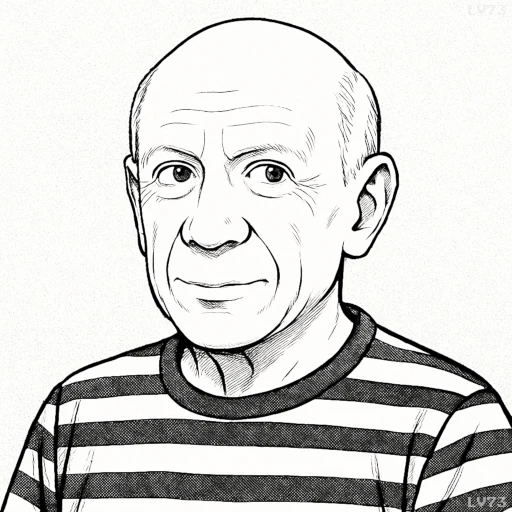“We all know that Art is not truth. Art is a lie that makes us realize the truth, at least the truth that is given to us to understand.”

- October 25, 1881 – April 8, 1973
- Born in Spain
- Painter, sculptor, printmaker
table of contents
Quote
“We all know that Art is not truth. Art is a lie that makes us realize the truth, at least the truth that is given to us to understand.”
Explanation
This quote by Picasso builds on the earlier sentiment that art is not about presenting literal truth, but rather revealing deeper, often abstract truths that resonate on an emotional or intellectual level. Picasso suggests that art is a constructed reality, a lie, in the sense that it does not reflect the world exactly as it is. Instead, it distills and interprets reality through the artist’s unique lens, creating a subjective version that may not be factual, but can nonetheless convey profound truths. These truths are not always immediately obvious or universal; rather, they are the truths that we, as individuals or societies, are ready to understand at a given time.
In the modern world, this idea resonates with the idea that art serves as a vehicle for exploration, challenging perceptions and offering insights that can shift our understanding of the world. Picasso’s own work, from the fragmented perspectives of Cubism to the emotional intensity of Guernica, often defied traditional representations and instead sought to uncover deeper, more complex truths about human nature, war, and suffering. Today, artists across various mediums still strive to capture personal truths through creative expression, recognizing that what is portrayed may not be the literal truth but is often more profound in its ability to evoke emotional and intellectual reflection.
An example of this idea can be found in the work of filmmakers like Terrence Malick, whose films often blur the line between reality and metaphysical truth. His movies, such as The Tree of Life, do not adhere to a linear narrative or strict realism, but instead convey philosophical insights about life, existence, and the universe, allowing the viewer to experience a version of truth that is more personal and reflective. Picasso’s statement speaks to the transformative power of art—not to provide factual truth, but to reveal a deeper understanding that can only be accessed through interpretation and reflection.
Would you like to share your impressions or related stories about this quote in the comments section?
